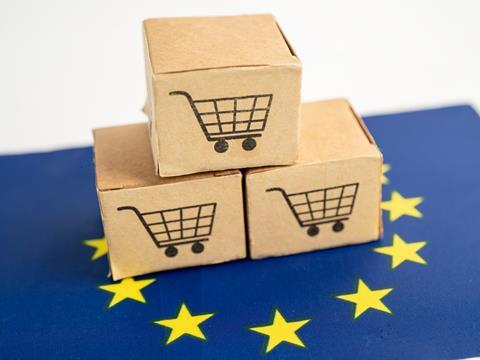
With the European Commission seeking to tackle a potential 19% increase in packaging waste by 2030, the EU Circular Economy Package is changing the way that packaging is produced in Europe. What implications does this have for industry players, and what can we expect going forward? Jenny Stanley, managing director and founder of Appetite Creative, tells us more.
The EU-wide rules on packaging, also known as the EU Circular Economy Package, have already had a significant impact on packaging companies across the European Union. The latest change – announced in October last year and which comes into force in March – ensures any business, including UK food exporters, selling food and drink to French supermarkets must include a recycling logo on labels, as well as a QR code that gives shoppers detailed packaging and recycling information.
It also requires products to be labelled with their country of origin, as well as their lot number, weight, and ingredients. The new regulations aim to reduce the environmental impact of packaging waste and promote a circular economy by encouraging the reuse and recycling of packaging materials.
This has resulted in a significant number of new constraints for packaging companies – these include:
1. New obligations to inform consumers about the environmental characteristics of products and their recyclability, as well as their repairability
2. Measures against the waste of food and non-food products
3. Reinforcement and extension of extended producer responsibility (EPR)
4. Reinforcement of waste management obligations and sanctions against the illegal dumping of waste
5. The objective of ending all single-use plastic packaging on the French market by 2040
One of the most significant changes brought about by the new regulations is the requirement for packaging companies to increase their use of recycled materials. This has led to a significant shift in the industry, with companies investing in new technologies and processes to support the use of recycled materials in packaging.
Additionally, companies are being held accountable for the end-of-life management of their packaging, including the collection, sorting, and recycling of waste. It is recommended that reusable packaging should have QR codes or an equivalent means to facilitate their recovery and harmonised, specific labels that properly inform consumers about packaging reusability and the availability of re-use systems.
The new regulations have also had a significant impact on the packaging design process. Companies are now required to consider the recyclability of their packaging and to use materials that are easily recyclable. This has resulted in the development of new packaging designs that are more sustainable and environmentally friendly.
The implementation of these regulations has also posed some challenges for packaging companies. The increased focus on sustainability and environmental responsibility has led to higher costs for companies, as they must invest in new technologies and processes to meet the new requirements. Additionally, the increased competition for recycled materials has driven up prices and created uncertainty in the market.
At Appetite Creative, we’re working with Tetra Pak, Elopak, and Greiner Packaging, who are all taking sustainability seriously. They’re investing in ways to ensure packaging can ultimately become zero-waste. We’re helping them to educate and inform consumers in an engaging way via connected packaging to ensure the end user understands how and why to use and recycle the packaging. We’ve been enabling marketers to deliver important information in a way that is easy to digest and put into action, empowering them to make the right choices for themselves and the planet.
With an ever-growing need for brands to act responsibly, connected packaging and the wider technology supporting it provides a smart solution. Connected packaging educates and engages the consumer. It offers an efficient and cost-effective way to collect first-party data, understand consumer preferences, develop products, run loyalty programs, and communicate directly with customers in real-time, as well as a simple way to improve credentials.
The EU-wide rules on packaging have had a significant impact on the packaging industry, driving change and innovation in a more sustainable direction. Companies must now balance their business interests with their environmental responsibilities and find ways to meet the new regulations while maintaining competitiveness.
Jenny Stanley is MD at Appetite Creative. For more information, visit appetitecreative.com.














No comments yet